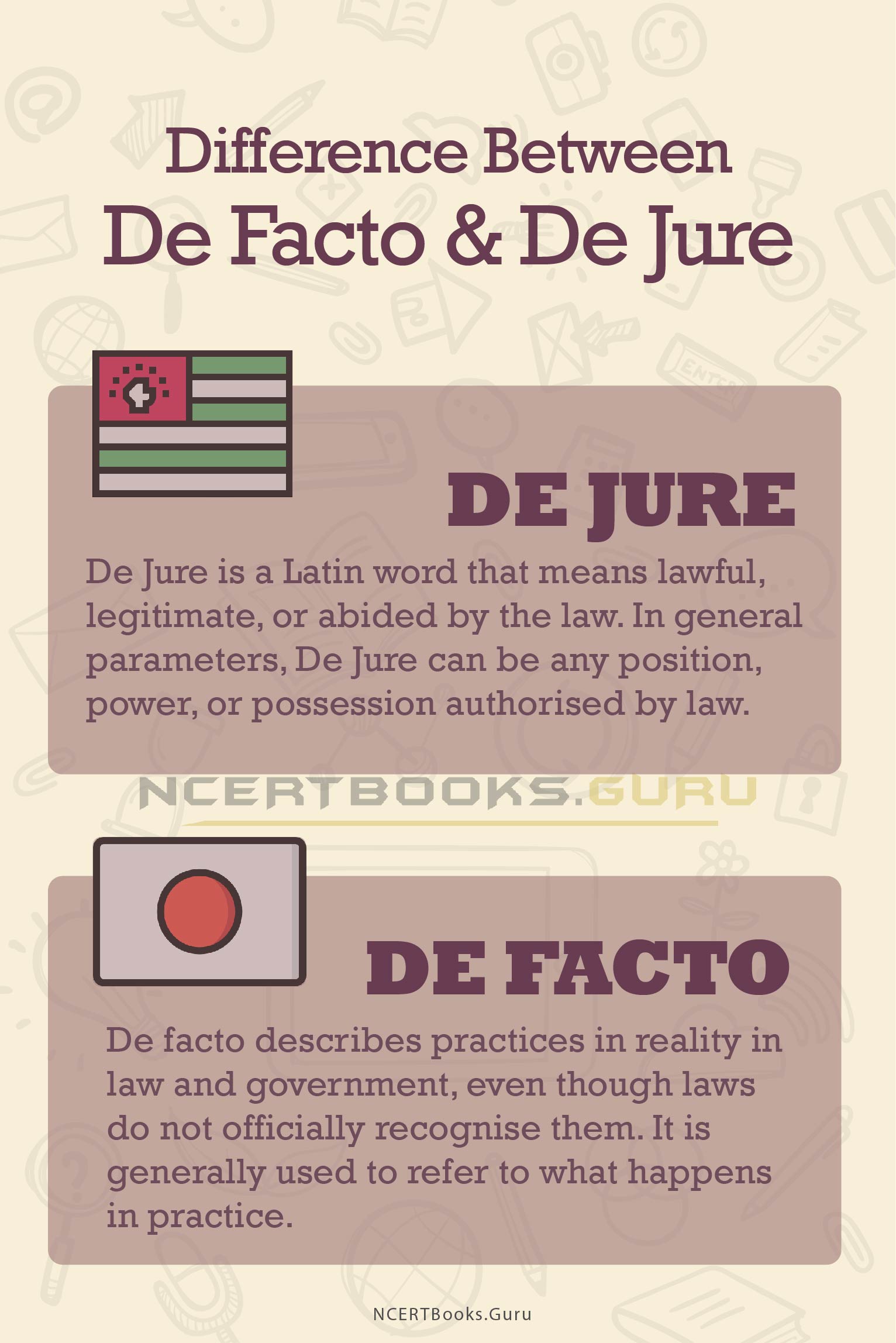De facto recognition is the recognition of a state or government by another state or government as a legitimate entity, even if it is not formally recognized by law or treaty. This type of recognition is based on the practical reality of the situation on the ground, rather than on legal or formal agreements.
There are a number of situations in which de facto recognition may be granted. For example, a state may recognize another state or government as a de facto entity if it controls a certain territory and is able to effectively govern that territory, even if it is not formally recognized by other states or international organizations. This can occur in cases of secession, where a group of people within a state seek to establish their own independent state, or in cases of revolution, where a new government takes power and establishes control over a territory.
De facto recognition can also be granted in cases where a state or government is not formally recognized by the international community, but is able to function effectively and has a significant level of control over a territory. This can be seen in the case of Taiwan, which is not recognized by many countries as an independent state, but is able to function as one in practice and has a high level of autonomy.
There are a number of benefits to de facto recognition for both the recognizing state and the recognized state or government. For the recognizing state, de facto recognition can be a way to show support for a government or state that is not formally recognized by the international community, and can also help to establish diplomatic and economic ties. For the recognized state or government, de facto recognition can help to legitimize their control over a territory and can also help to establish diplomatic and economic ties with other states.
However, de facto recognition can also have its drawbacks. It can create confusion and uncertainty in international relations, as it is not based on formal agreements and can change quickly depending on the situation on the ground. It can also create tension between states, as some may feel that de facto recognition is a way to bypass formal recognition processes and recognize governments or states that may not be legitimate.
In conclusion, de facto recognition is the recognition of a state or government by another state or government as a legitimate entity, based on the practical reality of the situation on the ground. It can have both benefits and drawbacks for both the recognizing state and the recognized state or government, and can create confusion and uncertainty in international relations.

.jpg/640px-Press_release_announcing_U.S._de_jure_recognition_of_the_state_of_Israel%2C_01-31-1949_(5669918866).jpg)






.jpg)